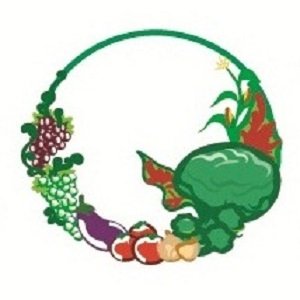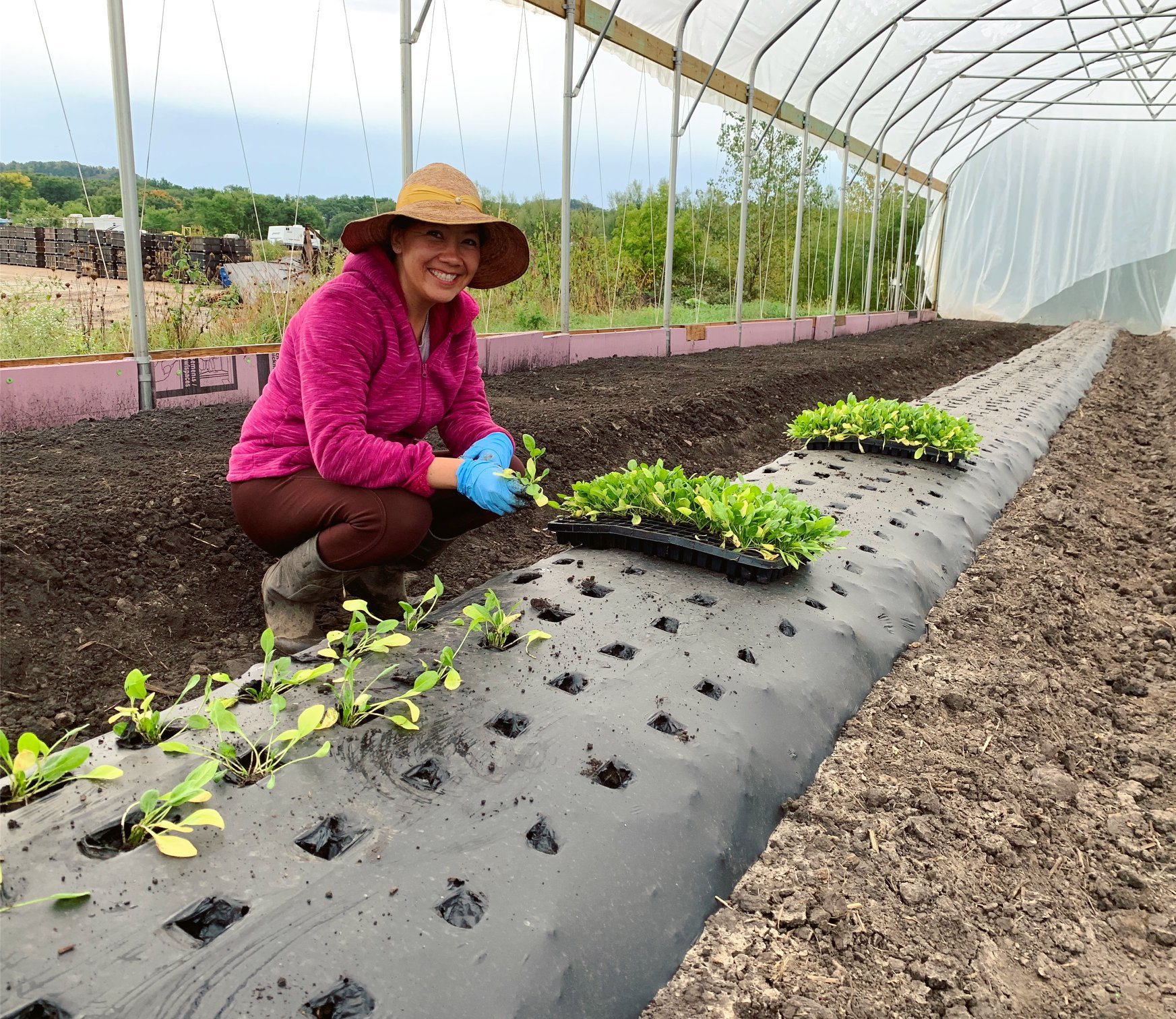
Welcome to Featherstone
Grown in Minnesota
Featherstone Farm is located along the Root River in the ecologically unique driftless region of Southeast Minnesota. Here, we focus on growing a wide variety of fruits and vegetables while upholding our values: building soil and protecting resources; being a fair and accountable employer; and keeping good, regional food in our communities.
The Farm Season at a Glance
While many of our CSA members don’t receive their first box until mid-June (with the exception of our Spring members!), the farm is waking up and getting ready in March, impatiently waiting for the ground to thaw as we begin seeding indoors. By mid-April we are hopefully in the field, prepping the soil to be planted with our first field crops: hardy brassicas (kale, collards, broccoli, cabbage), onions, and herbs.
In May, we are busy trying to plant seedlings in the fields, managing our full and overflowing greenhouses, and hoping the weather plays nice. Cool season crops like kale, broccoli and spinach really thrive and taste best during the spring (and late fall). During May and June, we enjoy these leafy crops while we wait for our high-summer crops to come on. We usually expect to see fruiting crops like cucumbers and zucchini in July, with tomatoes, peppers and watermelon making their appearance in early August.
The end of September and beginning of October are our peak harvest time. The farm crews are still picking all the summer crops, while also harvesting and preparing the root vegetables like carrots, radishes, and beets for storage. We start picking apples at Hoch Orchard, too. Just about everyone is putting in overtime this time of year.
By the end of October and into early November, we hope to be wrapping up our fall storage harvest as the weather cools. Winter CSA begins, and the tunnels are full of mature greens that we’ll harvest throughout the winter. Through December and January we are washing our root crops from storage and making sure the coolers and high tunnels don’t freeze. By February, our storage crops are starting to run low and we begin planning for the next season and looking forward to warmer weather.
Growing in Minnesota means we have to plant, harvest, and eat with the rhythms of the seasons. Compared to our produce growing friends in California, we have a much shorter growing season and very specific windows for when each crop is available. We also depend on storage crops (and high tunnels!) to keep us fed during the winter. When you're growing outside, crop availability and harvest can really vary from year to year depending on weather and especially temperature. For more on eating locally, see The Local Food Difference.
To learn more about Featherstone’s history, see Our Story and read Jack’s blog post. Read about our certifications that affirm and hold us accountable to our values.
Keep reading about CSA Member Success…






